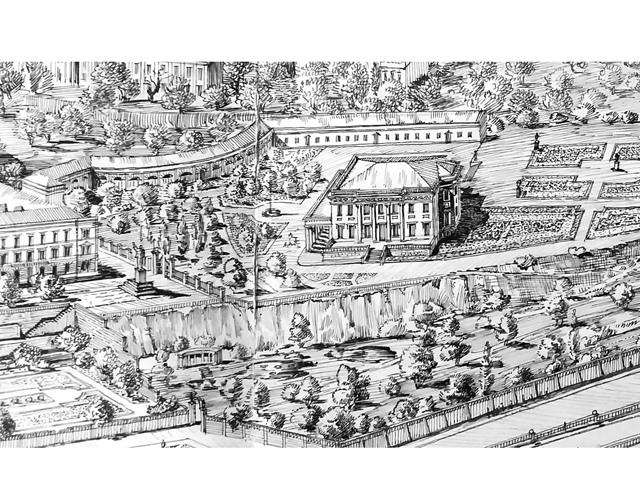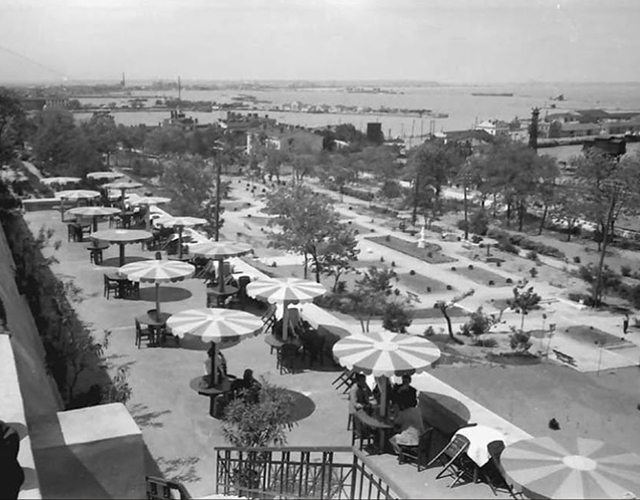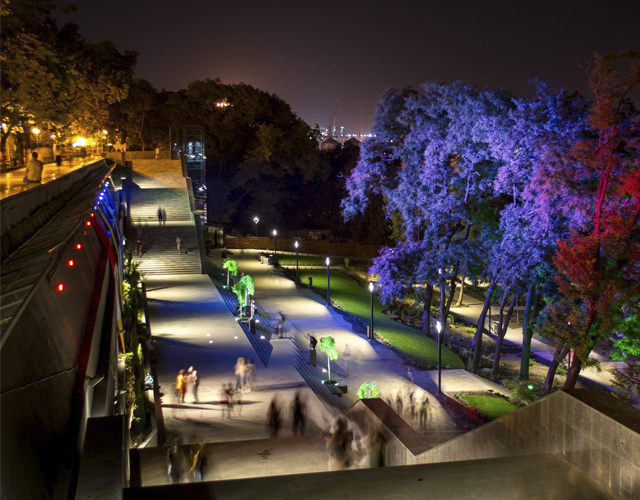A few millennia ago, Magna Graecia was extending to the Black Sea coast. About 2,600 years ago Greeks set up the sea harbour of Istrian on the site of the current city of Odesa. Thus, they left their permanent Greek mark in the history of these lands.
Modern history has known Greeks here since the 18-th century. Here Greeks got on well with the hostile Ottomans. Greeks were able to keep friendly relations with local Slavonic people, as both nations adhered to the Orthodox religion. After leaving their Greek islands, the Greek military battalion, entrepreneurs and seafarers, former capers and political fugitives found refuge and home in the young Odesa. Here they opened their cafes, made profitable trade deals, established schools, published newspapers, worked in the port under supervision of their compatriot Port-captain and a native Greek Burgomaster. It is here that the Greeks established the secret society "Filiki Eteria," aimed at creating of an independent Greek state. Wealthy Greek residents contributed to expansion of the local infrastructure and launching of charitable organizations. At the same time, they didn’t forget to help Greece by means of funding and construction of hospitals in Greece and supported Greek rebels and fighters for independence.

It would not be fair if Odesa has not had any cultural and heritage Greek spot. On September 2, 2018 "The Greek Park" saw its official opening and at once became one of the favorite places of residents and guests of Odesa.
The city Art project "The Greek Park" appeared in the heart of Odesa thanks to an initiative of the Greek side and a charitable fund Reva Foundation, founded by an honored artist of Ukraine and a talented sculptor Mikhail Reva.
"My name is immodestly attached to the name of the fund, because I guarantee by my reputation that all the funds that we attract will be directed only to cultural matters and projects related to art," explains the founder of Reva Foundation. It is no mere chance that a building known as "The House with an Angel" (a given nick-name of Rehabilitation center for children is due to a sculpture installed by M. Reva on the corner of the building) has a plaque, which says, " Do not withhold good from those to whom it is due, When it is in your power to do it. " Every new sculpture, every project by Mikhail Reva becomes a cultural event and an attraction in his beloved city, which has brought up a huge number of talents in different areas of creative activity well known outside Ukraine.

The Greek park is located in the heart of Odesa, next to the famous Potemkin staircase. The staircase was conceived as a front entrance to the city from the sea; it turned into a dominant in the architectural appearance of Odesa and its key symbol. The construction of the staircase was reported in the international media. In May 1838, the "Seaman's Journal," published in New York, wrote about the event. Then an American writer Mark Twain was inspired by his trip to Odesa in the summer of 1867 so much that he called it "magnificent" in his novel. The staircase became world famous in 1920 thanks to the great master of the Russian Avant-garde, Sergei Eisenstein, and his movie "Battleship Potemkin" (1925). The Potemkin Staircase has been ranked the sixth in the competition of the most beautiful stairs of Europe. It is crowned with a monument to one of the founding fathers of Odesa, Armand-Emmanuel du Plessis, Duke of Richelieu. The monument is crafted in the Classicism style, which became one of the main architectural styles of the city and Primorskiy Boulevard.
Since the first days, the city has been built in accordance with ancient patterns, emphasizing continuity to ancient Hellenic cities of the Northern Black Sea region. Each generation of city builders sought to follow the best traditions of their time, leaving fine samples of architectural monuments. The concept of the Greek Park smoothly enters the general ensemble of the Boulevard. A clear link with the ancient Greek history, which gave the name to the city itself, and the best modern trends of park development in the 21-st century are demonstrated in this project.
The planning and a layout of the park highlight a sense of strict order, corresponding to the harmony of classical architecture, which the author adheres to. Greece is the homeland of philosophical gardens. Such educational institutions as gymnasiums were usually located amid the park with fountains, flowerbeds and groves. Many statues were exhibited and exotic plants from the East were cultivated. Mikhail Reva creates a completely new format of space for unconventional parks in Odesa. "Gardens for Humanists" is a place for intellectual communication and pleasant downtime.

The concept of the Greek Park successfully combines modern trends of park design and development, taking into account all standard requirements, namely: the park is equipped with free access facilities for disabled people, as well as modern children's and entertainment grounds. At the same time, the creators managed to embody the essence of Greek symbolism. With the help of allegorical and mythological symbols each part of the Greek Park obtains a certain symbol, serves as the perfect environment for the perfect man. Mikhail Reva is going to relocate a museum of Greek culture, a library and a lecture hall into the park premises.
The art project of REVA Foundation in the Greek Park is overwhelming with a Cult of Beauty, i.e. the greatest power to transform the world. The park promises to become a perfect space, bringing delight to the audience from contemplation and giving reason for further reflection.
Understanding of art leads to understanding of life.